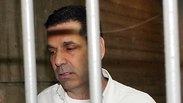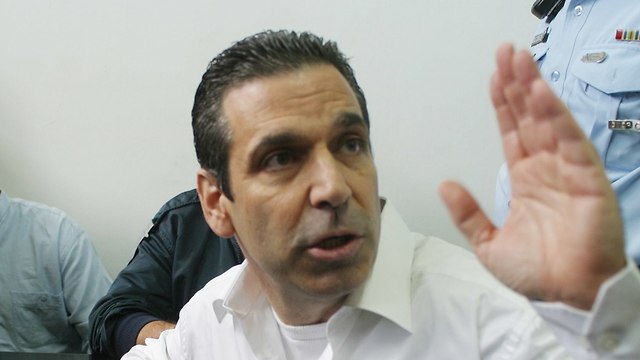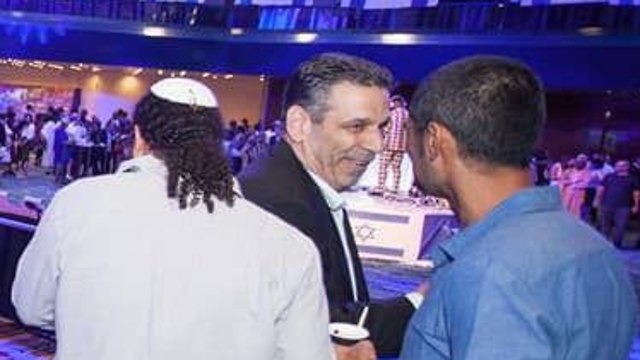
Gonen Segev behind bars
Photo: Yariv Katz

How security forces hid Gonen Segev from public eye after his arrest
As the Israeli former minister who was arrested for spying for Iran entered the courtroom, security services sought to maintain maximum secrecy by holding late-night hearings, switching off security cameras and disguising the mysterious detainee.
Following the arrest of former Israeli minister Gonen Segev last month
who was indicted last week for spying on the State of Israel for Iran, maintaining the secrecy surrounding his identity until the details were cleared for publication on Monday was a major challenge that preoccupied Israeli security services and demanded that he enter court proceedings in disguise.
Segev was charged with espionage, aiding an enemy in war time, as well as providing information to the enemy.
Living in Nigeria in recent years where he worked as a doctor, Segev tried to enter Equatorial Guinea in May 2018, where he was refused entry because of his criminal past and consequently transferred to Israel.
Once he landed and was arrested in Israel, maintaining secrecy about his identity was a top priority for Israel's security services who thought up elaborate ways to conceal him from the public eye.
Segev's first egal hearing was held during the late hours of the night in the absence of cameras in the courtroom and he was required to enter the court wearing a hat and glasses to make his identity difficult to discern.
It was in these shrouded circumstances that the legal hearings proceeded in court without the usual minutes being taken to ensure that investigators who were privy to the secret of the former minister’s arrest were able to keep the affair under wraps.
The door on Segev’s cell to which he was transferred bore no name, but the guards were fully aware who he was. After receiving a list of lawyers with high security clearances for him to choose from, Segev selected Moshe Mazor and Eli Zahar to represent him.
In the first nine days of his arrest, however, Segev was forbidden from meeting with his lawyers, even during the initial court hearing.
Another key problem that preoccupied the security establishment and the detectives was how to maintain secrecy when the spy was brought for a hearing about the extension of his arrest.
It was the Rishon LeZion Magistrates’ Court that considered the extension request filed by the authorities, where it was decided that only the court’s highest judicial figure—President Einat Ron—could be a safe bet to handle the matter with complete secrecy.
The hearings were once again scheduled to take place in the evening and the night during the quieter periods of the court’s day.
Prior to the discussions, security personnel coordinated with the court’s administrative staff members to ensure that security cameras were switched off for fear that someone would recognize the identity of the mysterious late-night detainee.
In addition, taking extra precautions to ensure that Segev was not spotted by anybody as he entered the court, he was brought to his hearing disguised, donning a hat and wearing glasses.
On Tuesday, Segev was transferred to Gilboa Prison near Beit She'an in northern Israel where security prisoners are held.
Segev is currently being held separately in the regular criminal wing with prisoners that police do not believe constitute a threat to him. He is receiving the same treatment as all regular suspects who have been indicted.


















